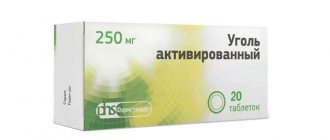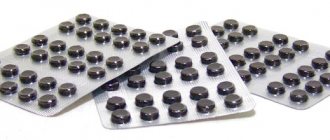Back to list Previous article Next article
21.06.2021
Tags:
flaxseed oil, useful
Vote
People have been using flaxseed oil for thousands of years and it has many beneficial properties. Manufacturers obtain flaxseed oil from flax seeds. It can be used in cooking and baking.
In this article, you will learn about the health benefits of flaxseed oil, including lowering cholesterol levels, reducing skin problems and inflammation.
We will also talk about the possible risks associated with consuming flaxseed oil.
What benefits are contained in flax seeds?
Flax seeds, like the seeds of other oilseeds, contain many useful elements; in terms of the content of polyunsaturated fatty acids - omega 3, 6, 9 - flax surpasses even fish oil. The seeds contain useful acids - linolenic, linoleic, oleic, as well as protein, carbohydrates, mucus, and organic acids.
Important microelements and beneficial substances were found in the seeds:
- fats – 41%;
- proteins – 21%;
- microfiber (fiber) – 28%;
- carbohydrates – 6% (sugars, aromatic acids, lignin);
- ash – 4%;
- potassium - the content of this element is greater than in bananas, and it contributes to the normal functioning of blood vessels and all organs and systems of the body.
The greatest benefit to the body comes from the mucus contained in the seed coat, and only when extracted in a cold way - pour the seeds in ordinary cold water for 6-8 hours, and then take this “cold jelly”.
Flax oil is a natural aid in the fight against various diseases
Active components of flaxseed oil
Almost all the substances in the flax plant can be characterized as bioavailable and extremely beneficial for the human body.
And now about each in order:
- linoleic and linolenic acids. These substances participate in metabolic processes at the cellular level, promote the synthesis of lipoproteins (necessary for normal cell activity), while reducing the amount of so-called “bad” cholesterol;
- Vitamin A. In the body, it is an important element that is part of cell membranes. Plays an important role in maintaining immunity, metabolism and the synthesis of sex hormones. Its antioxidant properties have also been confirmed - the ability to protect cells from “free” radicals;
- vitamin E. Tocopherols have antioxidant properties and help improve oxygen metabolism in cells. Help protect tissue structure in conditions of spreading inflammation and when exposed to other negative factors;
- phytosterols. Their beneficial role is to reduce the absorption of cholesterol in the intestinal cavity, which has a positive effect on the state of the circulatory system;
- lignans. These plant metabolic products are concentrated in synthesized oils. Their properties have not been fully studied, but it has been proven that they successfully replace chemical estrogens - female sex hormones. Of course, their effect is not so pronounced, but there are no side effects. Lignans can be used to minimize the negative manifestations of menopause, such as irritability, migraines, and disruptions in the cardiovascular system.
Is drinking good for the stomach?
The product of flaxseed processing, like any other vegetable oil, does not have any healing effect on the stomach. It is able to envelop the walls of the stomach, protecting against the effects of hydrochloric acid and aggressive foods. For stomach problems, flaxseed oil can be used as a salad dressing, or drunk on its own as a sedative, but not medicinal. Flaxseed oil for weight loss.
Moreover, when processing seeds and heating unrefined flaxseed oil, the rich composition of organic acids is actively converted into poisons - carcinogens that provoke the development of cancer cells. It can only be consumed as a regular product, in very limited quantities.
For gastritis
Traditional medicine recommends using flax seeds or flaxseed oil for gastritis. With gastritis, the functions of the secretory glands are disrupted, and increased secretion (hydrochloric acid) occurs. Flaxseed oil for stomach pain envelops the walls of the stomach, prevents the irritating effect of hydrochloric acid, relieving the symptoms of gastritis, but does not have a therapeutic effect.
With constant use of the product, you can achieve temporary relief, eliminate stomach bloating, a feeling of heaviness, and reduce acidity. But there is no point in taking flaxseed oil for gastritis, since it does not treat the disease itself.
You can drink no more than 15-20 g of oil per day and no longer than 2 months. After this, if gastritis is not treated, the symptoms of the disease resume again. Is it possible to eat bananas with gastritis and pancreatitis? Aloe in the treatment of the gastrointestinal tract.
For ulcers
In advanced stages of gastritis and stomach ulcers, flaxseed oil should not be used. It will not have a therapeutic effect, but will only ease the pain and delay the treatment process.
Use of flaxseed oil in medicine
This food product is successfully used as a natural medicine in the following cases:
- if necessary, accelerate the healing process of an open wound;
- when a mild choleretic effect is required;
- in complex therapy of constipation.
The presence of unsaturated fatty acids allows the oil to be used as a self-sufficient means for prevention or as a component of complex therapy for the following conditions:
- increased cholesterol levels, tendency to blood clots;
- disruptions in the functioning of the heart and blood vessels;
- lipid metabolism disorder;
- dermatitis.
Naturally, the properties of the oil are actively used in pharmaceuticals to create independent preparations almost entirely on a “linseed” basis.
One of these organic medicines is Linetol , which can be used both internally and externally. In the first case, the main indication for use is the prevention and therapy of atherosclerosis. Dosage regimen: 1 tablespoon per day. The course of treatment is 1 month, the break between courses is 14 days. It is recommended to drink Linetol on an empty stomach, in the morning.
External application of the oil helps in the treatment of skin damage caused by the following factors:
- irradiation in the treatment of cancer;
- chemical and thermal burns of a large area.
Traditional medicine also notes the healing properties of the oil, including in the treatment of constipation, small hemorrhoids and atherosclerosis of the vessels of the extremities.
Does it help with constipation and intestinal diseases?
Flaxseed oil has a mild laxative effect for constipation, like other vegetable oils.
But it must be taken into account that under any thermal influence, as well as when crushing the seed (for example, pressing to obtain flaxseed oil), the cyanogenic glocosides contained in the seed are fractionated, releasing cyanide, which is a potent toxic substance. According to the results of the study, in recent years there has been an increasing trend in the level of toxic cyanogenic glycosides (linamarin, linustatin, lotaustralin and neolinustin) in flaxseed.
When flaxseed oil is used in the intestines, under the influence of enzymes, hydrogen cyanide is released, which is an inhibitor of cellular respiration and produces thiocyanates. These substances disrupt the functioning of the thyroid gland, contributing to the development of goiter and critinism.
Flaxseed oil for constipation should be used in the morning on an empty stomach, washed down with cold water to enhance the effect, after which you should not consume hot food or drinks for 1 - 1.5 hours.
Hot method
- Take 100 gr. flax seeds.
- Pour 100 ml of drinking water and let it brew. The seeds should swell well.
- Place in a frying pan.
- Fry for 60 minutes over low heat.
- During the simmering process, juice will begin to release.
- The finished product is filtered and poured into a jar.
The oil obtained by the hot method is suitable for external use only.
When a patient is diagnosed with erosive gastritis, the drug is taken one teaspoon on an empty stomach, washed down with warm water. Duration of treatment – 3 months.
Can I take it for pancreatitis?
Patients with gastrointestinal problems are often interested in whether it is possible to drink flaxseed oil for pancreatitis.
If the disease is not in the acute stage, then the product can be used, but with great caution, no more than 1 teaspoon immediately before meals or with food, but it should be added only to cold dishes - salads or cooled porridges.
The product provokes increased production of bile, which is extremely undesirable for patients with pancreatitis. Bile enters the pancreatic channels, which contributes to the exacerbation of the disease. Therefore, during an exacerbation of pancreatitis, taking flaxseed oil is strictly prohibited.
Product selection criteria
Flaxseed oil quickly oxidizes in light and loses its beneficial properties.
Therefore, when purchasing, you should pay attention to the packaging - only a dark glass bottle. It quickly absorbs foreign odors, so high-quality products are not poured into plastic bottles. The presence of sediment and impurities is not allowed. The aroma is pleasant, slightly bitter; bitter taste; golden color, transparent; consistency is viscous, oily. If rancidity is felt upon opening the package, use should be discarded.
Flaxseed oil is stored in glass containers.
If you plan to use flaxseed oil for medicinal purposes, it is better to purchase it at the pharmacy, in liquid form or in capsules. This form is easier to use.
Treatment of trophic ulcers
Traditional medicine can cure leg ulcers.
Ulcers can affect any part of a person's body. Along with the digestive system, the skin often suffers (trophic ulcers on the legs are a common reason for visiting a medical facility).
The legs swell and fluid oozes from the wounds. Ignoring these symptoms may result in further amputation.
Traditional medicine allows you to cure leg ulcers quickly and without the use of pharmaceuticals. Ointments, compresses, powders made from natural ingredients effectively cope with the existing problem. The product is applied to the affected area and covered with a bandage. Many recipes involve long-term treatment: ointments and powders are applied to the problem area for about 2 months.
People suffering from the progression of trophic ulcers have experienced the advantages and benefits of a decoction of flax seeds. 100 gr. The plants are boiled in 3 liters. water for a long time (1.5 hours). The resulting thick mass is poured into a rubber boot and put on the sore limb. Then the leg is wiped and the sore spot is rubbed with nettle. There may be a burning sensation and the skin may itch. Such manipulations allow you to remove the tumor and heal the sore spot.
You definitely shouldn't eat flax if...
We came to the conclusion that flax is an incredibly useful plant that helps with many gastrointestinal diseases. But there are situations when its consumption is not recommended or even prohibited. What cases are we talking about?
- People with a “problematic” gallbladder and advanced gastritis should drink medicinal decoctions and infusions with extreme caution. The consequences can be very negative.
- Flax is completely taboo if polyps or poor blood clotting are found in the stomach. The restrictions also apply to gastric bleeding - it can get worse.
- An interesting feature of flax is associated with its ability to cause contractions of the walls of the uterus. Therefore, at any stage of pregnancy, flaxseed oil and seeds are excluded. The risk of miscarriage or premature birth is too high.
- It is not advisable to fry pancakes or pancakes in an oily substance. It is better to use traditional butter or sunflower oil for these purposes, and for gastrointestinal diseases, cook only by steaming. As a result of frying, free radicals are formed, which aggravate gastritis.
- The drug is also canceled in case of individual intolerance.
- Limit consumption for diseases such as bronchial asthma, diabetes.
- Two more contraindications are thyroid disease and lactation.
Ulcerative colitis
Herbal medicine is a reliable ally in preventive measures.
This condition, characterized by inflammation in the intestines, changes a person's life.
If you do not react in time and begin to take measures to improve your health, the person may end up in the operating room.
You can help the patient with medication or with the help of folk wisdom. Herbal medicine is a reliable ally in preventive measures; decoctions and tinctures help to avoid dangerous effects on the patient’s body.
With the help of herbs, the period of remission increases significantly and the patient enjoys life. Traditional recipes help stabilize the condition of patients who may suffer from depression, may experience weight loss, or may develop anemia.










